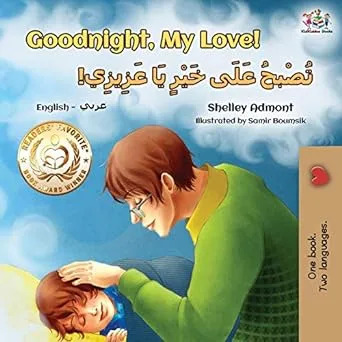In Arabic-speaking cultures, conveying good wishes for a peaceful night is a gesture that reflects kindness and consideration. The phrase commonly used to wish someone a good night in Arabic is
Good Night
“تصبح على خير” ( Tusbih ‘ala khayr)
Let’s explore the significance of this expression and the cultural context surrounding the notion of bidding someone a restful evening.
When a day starts it never move towards night directly. Instead it moves gradually , evening comes first before night. Good evening in Arabic is
Good evening/Good Afternoon
{masa’ alkhayr}مساء الخير
In Arabic, there are various ways to say “good night,” and the choice of expression can depend on the level of formality, the region, or personal preference. Here are 10 ways to convey good night in Arabic:
- تصبح على خير (Tusbih ‘ala khayr)
- تصبح على خير وعافية (Tusbih ‘ala khayr wa ‘afiya)
- ليلة سعيدة (Laylat sa’ida)
- أحلام سعيدة (Ahlam sa’ida)
- نحلم بكرة (Nahlam bokra)
- وداعًا لليوم (Wada’an lil-yawm)
- تحلم بالخير (Tuḥlam b-al-khayr)
- مساء الخير وليلة هانئة (Masa’ al-khayr wa layla hani’a)
- أسماء طيبة (Asma’ tayyiba)
- روح النوم (Ruh al-nawm)
1.تصبح على خير (Tusbih ‘ala khayr):
This is a common and widely used phrase to wish someone a good night. It’s a versatile expression suitable for both formal and informal situations.
2.تصبح على خير وعافية (Tusbih ‘ala khayr wa ‘afiya):
This variation adds the element of well-being, expressing not only a wish for a good night but also for health and safety.
3.ليلة سعيدة (Laylat sa’ida):
Translating to “happy night,” this phrase is used to wish someone a pleasant and joyful night. It emphasizes the idea of happiness during the evening.
4.أحلام سعيدة (Ahlam sa’ida):
This expression means “sweet dreams” and is a warm way to wish someone a restful night with pleasant dreams.
5.نحلم بكرة (Nahlam bokra):
This phrase, meaning “dream of tomorrow,” is a poetic way of wishing someone a good night, with the implication of looking forward to the coming day.
6.وداعًا لليوم (Wada’an lil-yawm):
Translating to “farewell for today,” this phrase is a more formal way to bid someone good night, often used in professional or business settings.
7.تحلم بالخير (Tuḥlam b-al-khayr):
This expression means “dream of goodness” and is another way to convey best wishes for a peaceful and positive night.
8.مساء الخير وليلة هانئة (Masa’ al-khayr wa layla hani’a):
Combining “good evening” with “pleasant night,” this phrase offers a comprehensive wish for a good night and is often used in a friendly context.
9.أسماء طيبة (Asma’ tayyiba):
Translating to “good names,” this phrase is a poetic way to wish someone a night filled with good thoughts and positive reflections.
10.روح النوم (Ruh al-nawm):
Meaning “the spirit of sleep,” this expression conveys a wish for a serene and tranquil night of rest.
Final Thoughts
When choosing which phrase to use, consider the context of the conversation, your relationship with the person, and the level of formality appropriate for the situation. Each expression carries its own nuances and contributes to the cultural richness of Arabic language and communication.
